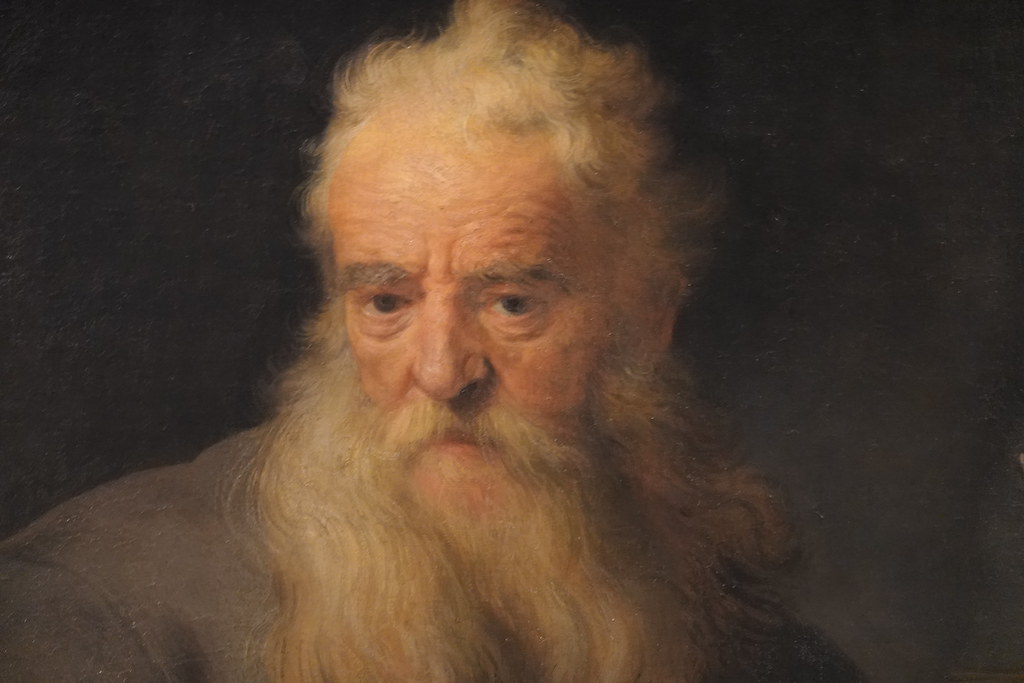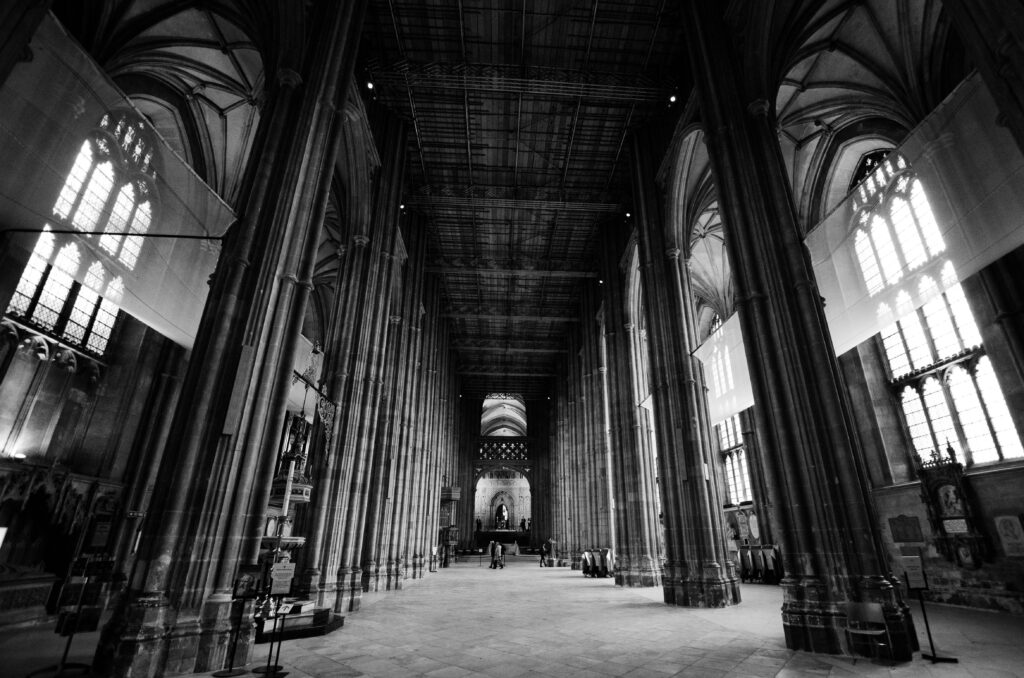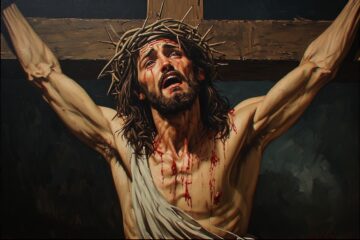When reason is untethered from revelation, it quickly becomes its own god.
It is with a heavy heart that one observes the current state of the Church of England and its wider Communion. There is a palpable sense of disquiet, a feeling that the foundations laid by the martyrs and confessors of our faith are being quietly, persistently, eroded. What we are witnessing is not merely a difference of opinion on secondary matters, but a fundamental shift in the very raison d’être of the national church. The tension is no longer between high church and low church, but between those who hold to a faith once delivered to the saints and those who advocate for a faith being continually renegotiated with the spirit of the age.

The Apostle Paul’s admonition to the Romans feels particularly acute:
“Do not be conformed to this world, but be transformed by the renewal of your mind, that by testing you may discern what is the will of God, what is good and acceptable and perfect” (Romans 12:2).
There is a profound and necessary disconnect between the Church and the world. The very word ecclesia leans towards “the called-out ones”. We the church are, by definition, a people set apart for a divine purpose. Yet, a prevailing and long-blowing wind within the Church’s leadership seems to seek to move in the opposite direction, suggesting now that our primary mission is not to call the world to repentance and faith, but to secure the world’s approval and endorsement.
This recalls the stark warning of the great Baptist preacher Charles Spurgeon, who, during the Downgrade Controversy of the late 19th century, declared that
“A time will come when instead of shepherds feeding the sheep, the church will have clowns entertaining the goats.”
He further noted, with chilling prescience, that
“The church the world loves, God hates.”
The desire and desperate reach for cultural relevance, when it becomes the organising principle of theology, leads inevitably to a form of idolatry. It is, as Saint Paul identified, a worship of the created thing rather than the Creator (Romans 1:25). When the central message of the Church becomes indistinguishable from the agenda of a secular non-governmental organisation, focused primarily on socio-political issues like climate change or a particular brand of social justice, however worthy in their own right, it has lost its transcendent anchor. As the late Father John Macquarrie, Lady Margaret Professor of Divinity at Oxford, articulated in his Principles of Christian Theology (1966), the Gospel is “a disturbing, challenging, and converting word,” not a sanctimonious echo of contemporary political trends.
The present funk surrounding the vacancy at the heart of the See of Canterbury exemplifies this profound divergence. The very notion that has emerged recently the archetypal Anglican see, a focus of unity for a global communion of nearly 85 million people globally, could perhaps be filled by a person whose views or very orders contravene the received faith and order of the universal church is a sobering indicator of how far the drift has gone and should provide for a reflection in churches, minsters and cathedrals up and down the land. To even consider appointing a figure who would be a point of great division for a very large part of the communion rather than unity could alas be considered corruptio optimi pessima -the corruption of the best is the worst of all. The steps the C of E have taken in the last 10 years to embrace acceptance above truth have alas led to this inflexion point. It would not be in any way a progressive step but more a revolutionary one that would seem to have darker roots and one that risks potentially igniting a conflagration within the Communion unlike we have seen. The issue is not one of personal capability, but of fidelity to a catholic order that the Church of England has always claimed to uphold. To alter this fundamental aspect of holy orders for the sake of contemporary egalitarian sentiment is to sunder oneself from the consensus of the ancient churches of both East and West, and indeed from a plain reading of apostolic practice. Further in the hearts of many confessing Anglicans it burns any bridges that may be left after all the socio-theological carnage we have endured since the early ’90s.

This leads us to the heart of the matter: the source of authority. On one side of the current divide are those who, either explicitly or implicitly, treat the Bible as a historical document to be deconstructed, its challenging edges smoothed down by the lens of modern critical theory. On the other are those who, in the classic Anglican formulation, uphold the Holy Scriptures as containing “all things necessary to salvation” and as being “the ultimate rule and standard of faith” (Article VI).
This is not mere simplistic fundamentalism; it is the very conviction that the biblical narrative, from Creation to Fall to Redemption in Christ, provides the only true and authoritative meta-narrative through which we are to understand God, humanity, salvation and the world. Our perspectives on justice, human nature, and society must be shaped by this revealed theology, not the other way around. The great Anglican divine Richard Hooker, in his Of the Laws of Ecclesiastical Polity (1594), established the famous threefold cord of Scripture, Tradition, and Reason. Crucially, however, he placed Scripture as the supreme authority, with Tradition and Reason as its essential interpreters and servants, not its masters. When reason is untethered from revelation, it quickly becomes its own god.
The consequences of this continued removal from biblical orthodoxy are not merely institutional; they are spiritual and missional. A church that no longer preaches the unique, saving work of Jesus Christ, who is “the way, and the truth, and the life” (John 14:6), has nothing of substance to offer a dying world. It may offer temporary comfort, but it cannot offer eternal salvation. It may speak of social cohesion, but it cannot address the sin that fractures all human relationships, including our relationship with the created order. The Early Church Father, Cyprian of Carthage, writing in the third century, stated plainly, “He can no longer have God for his Father who has not the Church for his mother” (On the Unity of the Catholic Church, 6). His concern was with schism, but the principle applies equally to heresy. A body that severs itself from the apostolic faith, even while maintaining institutional continuity, undergoes a spiritual death. It becomes a hollow shell, a social club with vestments.

This is why the call for a retrenchment to a more conservative perspective is not a call for obscurantism or nostalgia. It is a call for life, and one that is fully lived. It is a call to return to the fountainhead of our faith. The theologian Thomas C. Oden, in his monumental work Classical Christianity, argued for a “paleo-orthodoxy” which he defined as a “consensual, ecumenical, ancient teaching” that is the only secure foundation for a vibrant contemporary faith. This is what the Anglican Communion needs: a deliberate and courageous return to the classical, consensual Christianity of the Creeds, the Councils, and the catholic tradition. This is the faith that sustained Augustine of Canterbury, that inspired the Caroline Divines, and that was rediscovered by the Tractarians.
Does this mean schism? It is a painful word, one that every Christian should approach with fear and trembling. Our Lord’s high priestly prayer was “that they may all be one” (John 17:21). Yet, unity cannot be purchased at the cost of truth. There is a false unity, a unity of compromise and ambiguity, which is ultimately a betrayal of the Gospel. Sometimes, true unity in the Spirit can only be preserved by a separation from institutional error. Saint Augustine himself distinguished between the communio sacramentorum, the outward sharing of the sacraments, and the communio caritatis, the inner communion of love and truth. When the former is used to propagate a denial of the latter, a parting of ways may be the only faithful course. The words of the Apostle John ring down the centuries: “If anyone comes to you and does not bring this teaching, do not receive him into your house or give him any greeting” (2 John 1:10).
The path forward for the Anglican Communion is therefore one of difficult, costly choice. It must decide whether it is a confessing church, bound by the authority of Scripture and the catholic creeds, or a cultural church, shaped by the fleeting demands of secular morality. To choose the former is to embrace a future that may be smaller in number, and certainly more counter-cultural, but one that is alive with the truth and power of the Gospel. It is to choose a fidelity that may well lead to a necessary realignment, a sifting of the wheat from the chaff. To choose the latter is to accept a slow, comfortable decline into irrelevance, having a form of godliness but denying its power (2 Timothy 3:5).
The choice is stark, but it is clear. We must, as the people of God, remember our first love. We must return to the rock from which we were hewn. The world does not need a church that mirrors its own anxieties and prejudices; it needs a church that offers the unsearchable riches of Christ. As the Anglican Communion stands at this precipice, may God grant its leaders and its people the courage to choose truth, even over a hollow peace, and to be faithful stewards of the mystery of the Gospel, whatever the cost.
Pax.



0 Comments